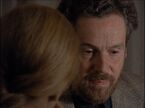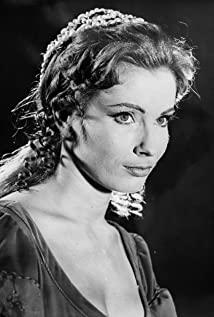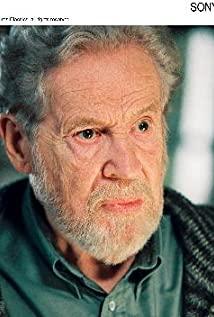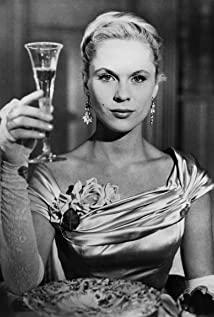Married Life (aka: Marriage Scene) is a 1973 film by Swedish director Ingmar Bergman. The film has two versions, the TV version is divided into six episodes, 295 minutes; the film version is 168 minutes, won the Golden Globe Award for Best Foreign Language Film in 1975. The TV version is more of a theatrical presentation, so the "scene" better reflects the title. The theme is about a couple exploring the meaning and nature of love after ten years of marriage. Each episode presents subtle and deadly conflicts in emotions, and strung together into a network of problems and contradictions, which are things that you may not dare to face head-on if you are fully prepared on weekdays.
The presentation of the drama also represents the high quality of the script, so I really want to retell and analyze each episode carefully.
Act 1: Innocence and Panic
"Joanne and Marian have been happily married for 10 years, Joanne is an associate professor, Marian is a lawyer, specializing in marriage and family law, they live comfortably and have two daughters. One day they invited Peter and Carter Linna had dinner. After dinner, the Peters began to quarrel, the conflict between them was both emotional and material, and they struggled violently to leave each other. Their best friend did his best to mediate the conflict between them A few weeks later, Marianne found out she was pregnant, Joanne accepted it calmly, but not enthusiastically. After deliberation, they decided not to have the child, they tried to avoid the subject, but doubts suddenly turned to Marianne attack."
This is the director's introduction to the first act of the play.
The play can be divided into three parts: an interview with the editor of the women's magazine on the married life of the Joannes (from the beginning to 00:16:03), the dinner between the Peters and Joannes (00:16:03-00:37 :14), Conversation with Joann after Marianne's pregnancy (00:37:14 to end).
Part 1: Unspeakable Love in a Distorted World
The first part starts with the family photo of Joan and his wife with their two daughters. After the daughters leave, they enter the main topic.
The magazine team took group photos and portraits of the two while conducting interviews. First, let’s start with a single-person introduction: her husband, Joan, talks rhetorically about his personality, talking about his academic quality and temperament from the inside out. He loves politics, cares about the country, and is a good citizen through and through. He is also a good son, a good A friend and a good husband. Joan is chatty and laughing and is very confident.
As for the wife on the side, Marianne was very evasive about the personal introduction. While listening to Joan's remarks, she was embarrassed and embarrassed, but had to cooperate. It is not difficult to see that the confused Marianne has sacrificed too much of herself in this ten-year marriage-she said: I am married to Joanne, have two daughters, and can't think of anything else. The present life makes her happy. At the same time, her face was embarrassed, which meant hesitation about the truth of what she said.
The opening of the first act has already portrayed the position of a self-hypocritical husband and a humble wife who cares for the family, although the two are equal in family background and career. In order to control this embarrassing situation, the reporter began to dismantle the problem. Marianne calmly said that she is engaged in legal work and is mainly responsible for divorce lawsuits. The funny thing is that even though she has been engaged in divorce lawsuits and has seen all the divorce phenomena, she still has no way to deal with her marriage that is gradually getting out of control.
Content moves from the individual to the whole. They began to narrate the experience of the two of them meeting: at first, they didn't have a special affection for each other, but they were classmates who knew each other because of politics. Joann was very romantic, and Marianne was also in the first marriage. By coincidence, they became friends again. After being single, the two got along slowly because their three views were compatible and got along well, but there was still no love. Everything in their married life was peaceful and beautiful, and Joan said it was almost embarrassing, stable, regular, content, loyal, and they were lucky. And Marianne said that even if they quarreled, they could solve it, but she heard that conflict always comes from too harmony, and they knew the danger of this kind of life.
When explaining the meaning of danger, Joan said impatiently that the world was dying, and he had the right to think about himself first. Instead, Marianne said that compassion is the most important thing—the world would be different if you weren't selfish and cared more about others. It can be seen that the two people's world views actually have an essential conflict. When an altruistic person encounters egoism, the sad ending is doomed. The Joan couple started their own contemplation, and all the distress was written on their faces.
Marianne walks away, and Joanne admits that it wasn't that simple, and now they realize that bad things can happen anytime. He likes an illusion of stability, of stupidity and fragility that comes with old-fashioned furniture. He is an atheist but likes the piety and sense of belonging that Bach's Matthew Passion brings. He relied on his relationship with his family because he felt protected as a child. In order to maintain happiness, he seeks something reassuring and false.
Joanne walks away again, and his wife Marianne returns to the camera. At this time, only she and the old acquaintance reporter were the two of them. At this time, Marianne's arms are together, showing a kind of inner defense and protection.
The reporter claimed that Marianne's life was very happy and perfect, and this added a hint of destiny. Marianne puts it down to luck, but luck is a fragile and fickle thing. Then she explained the happiness in her eyes: happiness is contentment, wanting to keep everything now. The reporter asked again, what do you think of loyalty? Marianne said that loyalty is a kind of giving, not a duty or a rule. It cannot be promised. She is loyal to Joan because she likes it, but she doesn't know what will happen tomorrow or next week. The reporter asked her to define love, Marianne said leisurely, she thinks that as long as you are good to the person you live with, love is also very important, humor, friendship, tolerance and reasonable expectations, with these, love will be Not required. The reporter saw her dissatisfaction, and she said anxiously that all she saw in her work were failures, and they were deeply troubled by unrealistic emotional needs. She felt that this was vulgar, and she hoped that people would not be forced to play willing to play a role that will be better for others. In the conversation involving sensitive words such as love and loyalty, the camera gave a close-up of the face.
Marianne believes that life is not romantic and cruel, and she would rather talk about cooking with children. She is a very sober person who does not rely on the only thing to survive, and also has a relatively healthy personality. As a modern woman, Marianne knows what she is doing, she does what she wants, and she judges her actions with love and responsibility compared to her hypocritical husband.
At the end of the interview part, there is a general position on the emotional state of Joan and his wife: both of them are trying their best to maintain the surface harmony and affection, and are unwilling to dismantle and destroy them. The superior, egoistic Joanne is dissatisfied with this decade of marriage, a hedonistic high-level intellectual who is trying to escape the emotional gaps in order to escape the disappointment of reality. Marianne is synonymous with forbearance and compassion. She clearly knows that danger will come inadvertently, but she would rather live the present down-to-earth and not make assumptions. Instead, she does her duty to guard the home she relies on and maintain the little love left. . Their marriage, like most marriages, has a love burnout and weariness that looks like everything is going well, but can't face the details over the years. Just as irresistible as food spoils over time.
At the beginning of the marriage life, it tells the essence of its fatalism.
Part II: The Collision of Two Noble Worlds
The second part is a dinner for two couples. After one pair becomes two pairs, the expression of emotion becomes no longer a matter of comparison.
The description of the relationship between the two published in the newspaper: Two souls who grew up together, have a common self-confidence worldview, but love is still what they cherish most. This perspective is somewhat ironic: it obviously represents an outsider's point of view - in fact, in love, bystanders do not know, it is precisely the people in the game who know themselves. Marian's love and humility towards Joan can also be seen in the conversation between the two couples. From the very beginning, she decided to believe every word Joan said, even though she definitely knew Joan's clever lies.
Compared with the undercurrent of conflict between Joan and his wife, the problems of Peter and his wife are exposed like a tsunami: they do not get along well in their lives, and Peter is irritable with her and always makes things difficult for her. Divorce can make the problem worse because of financial and career cooperation and ties. Peter's wife, Katerina, had an affair early on, but Peter tied her down on the grounds of sex. They tormented each other and couldn't part, bickering and hating each other and relying on each other, and Katerina said she had a hopeless tenderness about their relationship.
The two of Peter and his wife ended up arguing and left the camera, leaving only Joanne and Marianne left. Marianne asked, do you think two people can be together forever? Joan replied, God knows who this is a stupid agreement inherited, a 5-year contract is ideal or an agreement to renew. Marianne tentatively asked, do we want to do this too? Joanne replied, we are an exception to this rule. It can be seen that under the ten years of marriage, against the background of the more unfortunate pair, the two of them also have warm moments of sympathy for each other. But it's hard to hide Joan's hypocrisy as always. Marianne asked again, wouldn't it bother you not to have sex with other women? Joann said, no...sometimes. Marianne would choke the thought to death. Joan pretended, he didn't have the illusion that he was happy. Marianne believes that the lack of a common language between the Peters makes everything worse, and that money is not an issue if you have a common topic with others and trust each other. But Joanne was very opposed.
This part presents two typical images of marriage. Peter and his wife are collapsed, and they have long been bound by the form of marriage. The Qiao An couple, who have no fierce conflict, are more calm and decisive. While enjoying their emotional life, they are also escaping the inevitable conflicts they will face. The difference between the two is the difference between cold and heat. In fact, it is an internal opposition of fire and water. these differences. Can't be separated and can't love each other.
This dialogue is very tense, and at the same time shows the state of Marianne: cautiously hoping to test emotions, but also shows her acquiescence to the established reality. After this conversation, the couple who saw the hug was no longer sweet, but more like a habitual embrace of an unreal body.
Part 3: Reluctantly the flowers go away
The third part is a conversation between Marianne and Joanne who are pregnant.
Marianne wanted to have a serious conversation, and the two of them found a decision together. Her starting point was "we", and Joann's response was very selfish. He also had a reason for the appearance of the child, but he said: You decide, the burden and happiness are all up to you decision, and it doesn't matter at all. From here, Joan began to show his impatience with this relationship. He felt a sense of crisis of self-escape because of the arrival of the child. He did not dare to show himself completely frankly. In fact, he could see that the child was a stumbling block. And some blame Marianne. His cold, out-of-the-box attitude already showed that he was exhausted.
When they decided not to have children, Marianne's atoning weakness accelerated Joanne's helplessness, who didn't understand the feelings of a mother's wife. The conversation was over, and their differences were so severe that they almost spiraled out of control. When Marian needed to take care of her, Joan kept shirking her responsibilities and went out. Up to this point, Joan is still trying to be brave, pretending to play the role of an incompetent husband.
At the end, Marianne was heartbroken, covered with a quilt and cried, with a hint of distress, a hint of pity, and a bit of fear and helplessness.
The theme of this scene is innocence and fear.
It can be very clear about Marianne's role in this ten-year marriage. On the one hand, she maintains an innocent and pure attitude towards this rare relationship. She is dedicated to her family, her children and her husband, and strives to balance it. The relationship between the individual and the husband and wife, family and career, her innocence lies in her sincerity, as well as the sad self-deception, she can choose to live with suspicion or utilitarianism, but because she loves her own pure goodness , she chooses the good side honestly, and it is her "uncontested" and innocence that makes this relationship full of fine lines.
Therefore, she is anxious and restless inside, and her happiness that is like walking on thin ice will fall into the ice cave if she is not careful. If Marianne appears as a person, she is mature and sensible, and she is afraid of her feelings for her husband and her family. cherish. At the same time, Joan is also naive. He is obsessed with the beautiful feeling and simple things that can go away when you blow it. Compared with Marianne's choice, his innocence is superficial with high IQ, and it is really naive, and his fear is also exposed. . It can be seen that this emotional inequality.
The first act explores the following issues: indistinguishable emotions, deceit, fidelity, the bondage of multiple relationships, weariness, love-hate indifference mixed with interrogation of love, happiness, joy, and Questions about a stable life. Could it be that there are fewer problems under the condition of happiness and prosperity? Is the family happy without cracks? Is there a peaceful silence beneath a perfect relationship? Which sentence is true and which sentence is false? This scene gives the answer, but not the complete answer.
All topics are analyzed here, with complex and rich characters. We can also find the contrast of our relationship from this scene, and we can't help but sigh that it is really the case. Society has placed layers upon layers of moral shackles on love and marriage. These shackles cannot be broken free, and one can only try to find a way out in a personal way. It's just that it really doesn't need to pile up lies, just like Marianne said to Joan over and over again, can you be frank? Honesty is the most basic and most valuable.
View more about Scenes from a Marriage reviews











